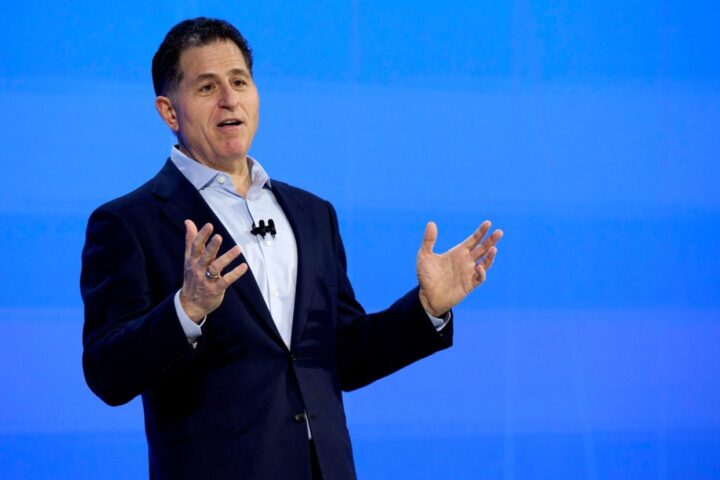Amazon has made another high-stakes move in the rapidly evolving world of artificial intelligence, offering a massive $4 billion investment to Anthropic, an AI startup co-founded by former OpenAI researchers, in a bid to convince the company to use Amazon’s proprietary AI chips rather than relying on Nvidia GPUs. This new development underscores the escalating competition in the AI hardware and cloud services industries, as Amazon seeks to challenge Nvidia’s dominance and carve out a larger share of the AI market.
The Stakes in AI Hardware and Chip Wars
AI is rapidly becoming the linchpin of technological progress, from natural language processing and computer vision to autonomous systems and robotics. As demand for large-scale machine learning models skyrockets, the hardware that powers these models has become a highly sought-after commodity. Nvidia, which has been a dominant player in the field, has long controlled the GPU market, with its high-performance graphics processing units (GPUs) being the go-to hardware for training and running AI models.
However, Amazon has been looking to disrupt this hegemony with its own suite of custom-designed AI chips, most notably its Graviton and Inferentia chips, which are designed specifically for cloud-based AI workloads. These chips are engineered to handle complex machine learning tasks more efficiently, at a potentially lower cost, than Nvidia’s widely used GPUs.
Amazon’s deep pockets and massive cloud infrastructure through Amazon Web Services (AWS) have allowed the company to create a formidable alternative to Nvidia’s chips. Yet, despite the appeal of these chips, persuading leading AI companies like Anthropic to adopt them has proven to be a challenge.
A Second Attempt at Securing Anthropic’s Business
Anthropic, founded in 2021 by former OpenAI researchers including Dario Amodei, has quickly emerged as a major player in the AI field. The company’s focus on creating safe and interpretable AI systems has attracted significant attention and investment. Anthropic has raised over $1.5 billion in venture capital and is known for developing cutting-edge language models, similar to OpenAI’s GPT series.
Until now, however, Anthropic has primarily relied on Nvidia’s GPUs for training its models, making it a key customer for Nvidia in the burgeoning AI chip market. Amazon’s previous attempts to convince Anthropic to switch to its own chips have largely failed, with the company sticking to Nvidia hardware due to its proven performance, ecosystem, and the familiarity that Nvidia’s CUDA programming framework offers to developers.
But Amazon is doubling down with a new $4 billion offer, a massive financial incentive designed to persuade Anthropic to adopt AWS’s AI chips instead of Nvidia’s. The offer, which includes not only funding but also a multi-year contract to supply AI infrastructure via AWS, underscores Amazon’s desire to challenge Nvidia’s dominance and position its chips as the preferred solution for AI startups and enterprises alike.
The offer also includes promises of deeper integration between Anthropic’s AI models and AWS’s cloud services, ensuring that Anthropic would have access to the latest advances in cloud-based infrastructure and computational power. Sources familiar with the negotiations indicate that Amazon has emphasized how the scalability and cost-effectiveness of AWS’s hardware could provide Anthropic with a significant competitive advantage as it scales its AI research and products.
Nvidia’s Dominance: An Uphill Battle for Amazon
Despite Amazon’s large investment and the promise of tailored services, convincing Anthropic to abandon Nvidia’s GPUs is no easy feat. Nvidia has long been the leader in the AI hardware market, and for good reason. Its A100 and H100 GPUs, as well as its DGX systems, have become the gold standard for AI workloads. These GPUs are designed to handle the massive parallel processing tasks required by machine learning models, providing unmatched performance and efficiency.
Additionally, Nvidia’s CUDA software platform is tightly integrated with its hardware, making it the preferred choice for many AI developers. The software framework, which includes libraries, compilers, and tools designed to optimize the performance of AI algorithms on Nvidia GPUs, has helped solidify Nvidia’s position as the go-to provider for AI infrastructure.
Moreover, Nvidia’s extensive track record of partnerships with major AI companies—including OpenAI, Google DeepMind, and Meta—has created a network effect that is difficult for any competitor, including Amazon, to replicate. Anthropic, like many AI startups, has relied heavily on Nvidia’s hardware to train and deploy its models, making it unlikely to abandon the platform without a compelling reason.
For Amazon to succeed in its bid, Anthropic would need to be convinced that AWS’s AI chips can match or exceed the performance of Nvidia’s offerings while offering better pricing and long-term scalability. Amazon will also need to demonstrate that it can offer a robust and developer-friendly ecosystem, an area where Nvidia has a distinct advantage.
A Strategic Move for Amazon
This latest push by Amazon is part of a broader strategy to grow its market share in the AI sector. As AI continues to dominate conversations in tech and business, Amazon is positioning itself as a major player in the industry. Beyond its chips, Amazon is already a leader in AI cloud services through AWS, and it has made significant investments in developing large language models, autonomous systems, and AI-powered products.
Amazon has been focused on creating a more integrated AI ecosystem through AWS, offering a suite of tools for developers to build, train, and deploy machine learning models. Its SageMaker platform, for instance, is designed to simplify the development process for machine learning engineers, and its Deep Learning AMIs (Amazon Machine Images) provide pre-configured environments that support popular AI frameworks like TensorFlow, PyTorch, and MXNet.
Yet, despite Amazon’s considerable efforts, Nvidia remains firmly entrenched as the industry standard for AI hardware. The company’s chips are not only favored by tech giants like Meta and Google but also by AI research labs and universities. Nvidia’s leadership in AI hardware has translated into a near-ubiquitous presence across the AI landscape, making it a formidable opponent for Amazon.
The battle for AI hardware supremacy is far from over, and Amazon’s latest offer to Anthropic is just one piece of a larger puzzle. As AI adoption continues to grow, the competition between Amazon and Nvidia will likely intensify, with each company vying for a larger share of the increasingly lucrative AI market.
If Amazon can convince Anthropic to switch to its AI chips, it would mark a significant victory in the ongoing war for AI infrastructure, signaling that the company’s custom chips are becoming a viable alternative to Nvidia’s industry-leading GPUs. However, the road to displacing Nvidia’s dominance remains challenging, and it’s unclear whether $4 billion will be enough to turn the tide in Amazon’s favor.
For now, all eyes are on Anthropic and whether it will accept Amazon’s offer or continue its partnership with Nvidia, which has proven itself as a key player in the rapidly growing world of artificial intelligence.
Amazon’s $4 billion investment in Anthropic represents a bold, high-risk effort to shift the balance of power in the AI hardware and cloud services markets. With Nvidia’s dominance in the AI chip industry, Amazon faces a steep uphill battle. Yet, with its vast resources, growing AI capabilities, and aggressive push for market share, Amazon is showing that it’s not backing down from its goal of becoming a major force in the world of AI infrastructure. Whether or not Anthropic will take the offer remains to be seen, but one thing is clear: the AI hardware wars are only just beginning.








